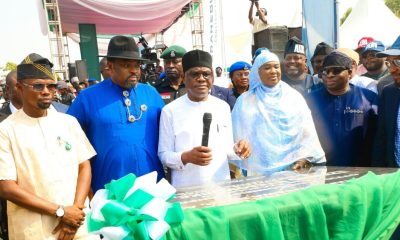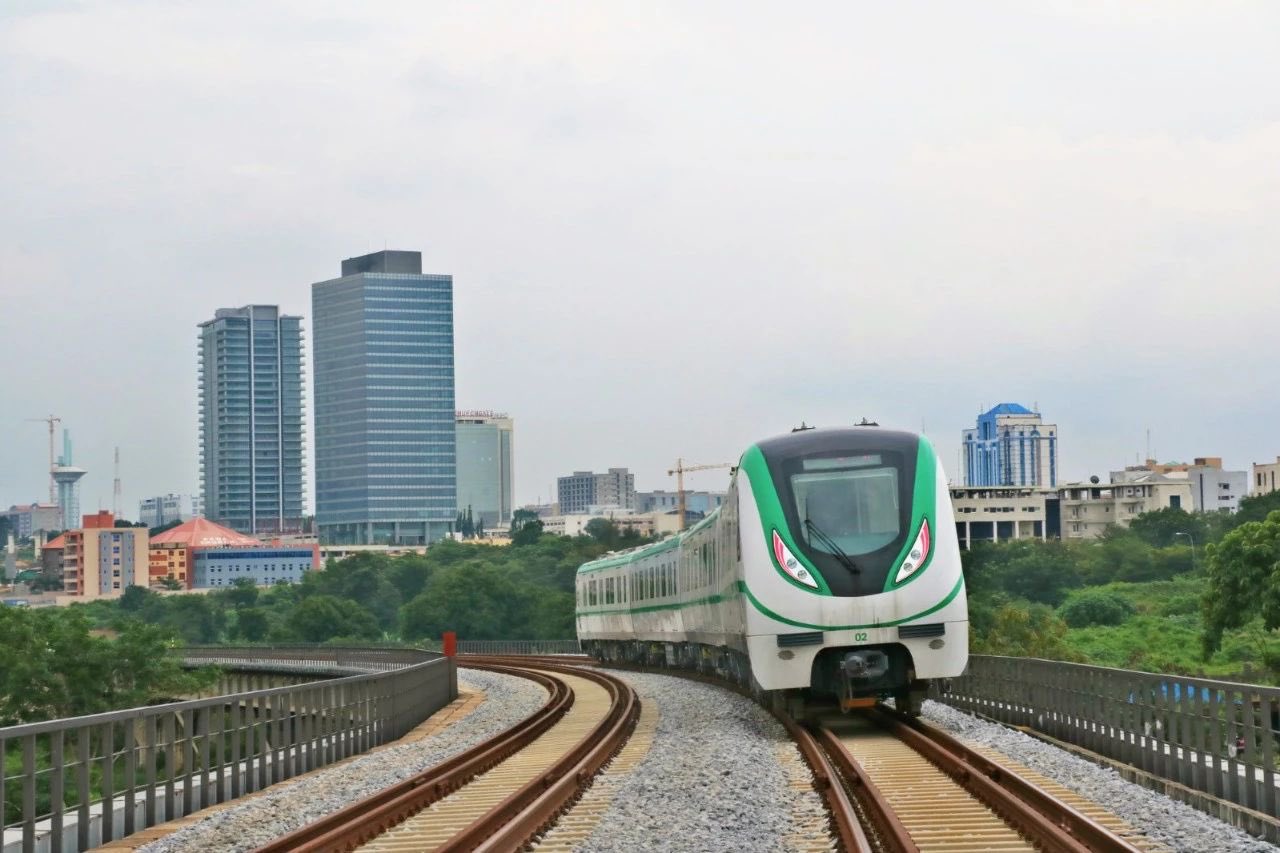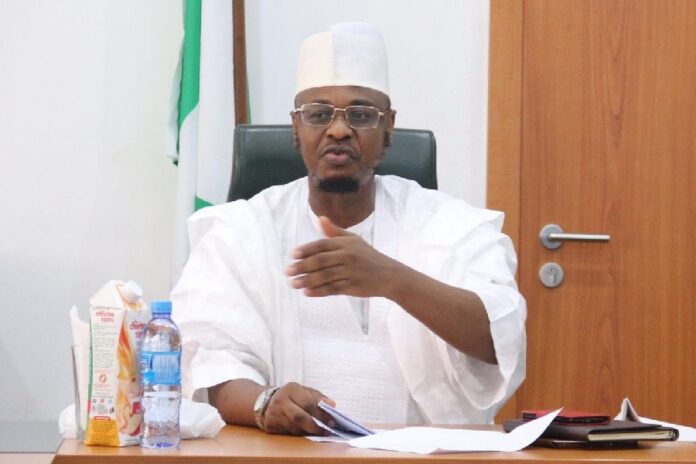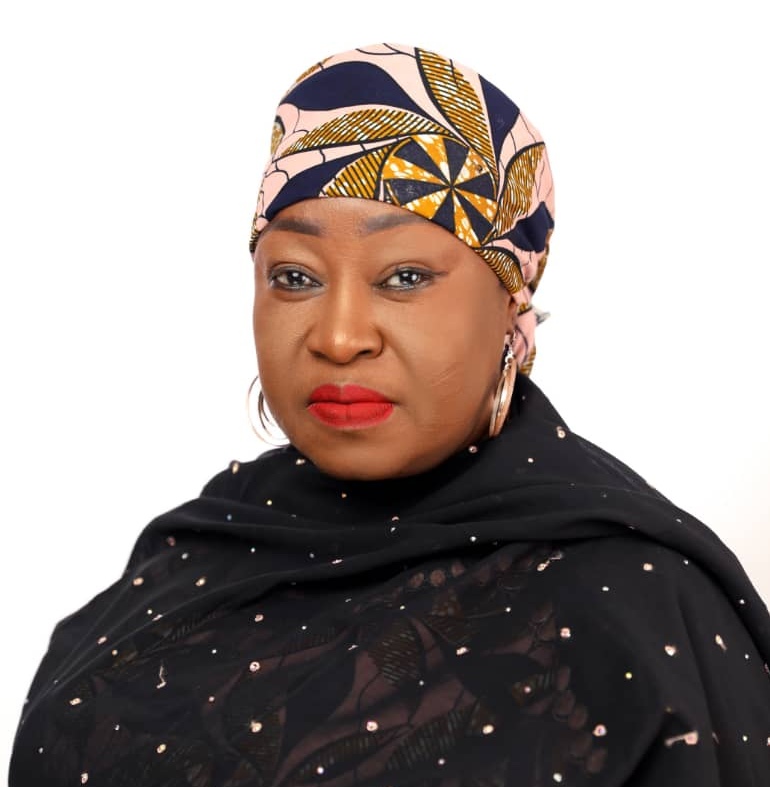Headlines
Challenges of Cybersecurity in Smart Cities: IoT Vulnerabilities
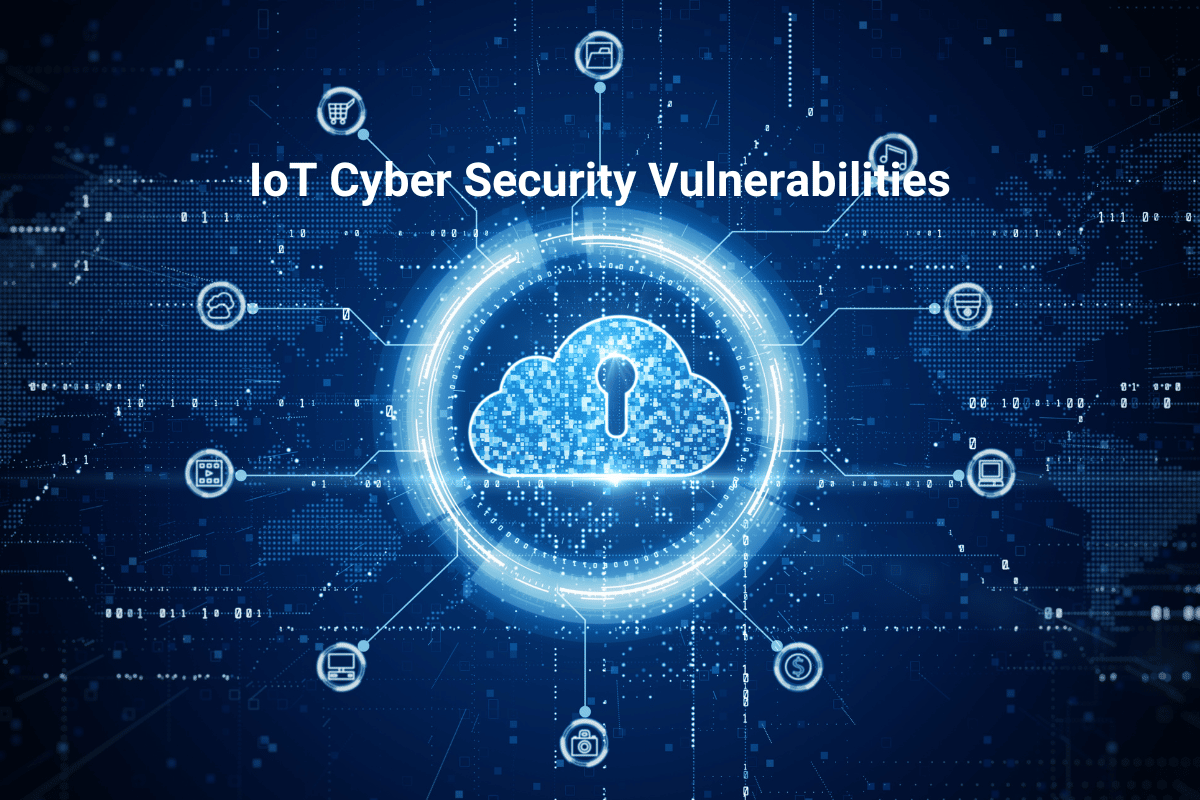
Challenges of Cybersecurity in Smart Cities: IoT Vulnerabilities
By Abuh Ibrahim Sani
The rapid development of urbanization has brought the innovation of smart cities where digital technology and data-driven systems are been used to improve the services of urban systems to the people. Virtual in our modern home today, IoT devices and appliances are taking centre stage in making lives convenient and easy for citizens. The innovation of IoT systems in urban development has connected millions of devices, sensors and gadgets. However, there is serious concern as regards the security of IoT devices and also the cybersecurity of smart cities.
The Role of the Internet of Things in Smart Cities
The foundation of any smart city lies in its IoT infrastructure. These devices are linked in every angle of the city management, from public transportation and traffic control systems to waste management, medical devices, energy and water supply. They constantly collect, transmit and analyse data, allowing cities to run more efficiently. The connectivity of this device brings a potential entry point for cyber-attacks, the more connected the devices, the greater the increase in attack surface and breaches. In the area of smart cities, the security of these devices becomes even more worrisome because of the many critical infrastructures they control. A single breach could affect the spread and cause chaos.
Inadequate Security of IoT Devices
Securing smart cities is difficult because a large number of IoT devices do not have strong security features. Many IoT devices, especially those mass-produced and sold cheaply, lack built-in security protocols in their hardware. Hackers can take advantage of fundamental weaknesses such as simple passwords, outdated firmware, and absence of encryption. For example, a lot of IoT devices use default or hardcoded passwords that are easily obtainable, making the devices vulnerable to hackers who take advantage of these vulnerabilities to take control. Compromised IoT devices in smart cities can serve as gateways for launching major attacks that could affect power grids, traffic control systems, and emergency services.
The Complexity of IoT Ecosystems
Smart cities operate via a network of interconnected devices that communicate with different systems. Handling such a large and varied ecosystem presents a cybersecurity challenge in its own right. Various devices can use various protocols, which are often from different manufacturers, resulting in fragmented security measures. Coordinating and standardizing security across different platforms and devices is a challenge in the growing IoT landscape. The high quantity of devices in a smart city presents an additional challenge. Keeping track of and protecting numerous, potentially millions, of interconnected devices simultaneously poses a substantial challenge for any urban area. The difficulty further increases with numerous devices placed in public or distant areas, which makes ensuring physical security and timely updates a challenge.
The Risk of Large-Scale Attacks
Smart cities are at risk of facing major cyberattacks due to vulnerabilities in IoT technology, which can have serious impacts on both residents and city functions. Distributed Denial of Service (DDoS) attacks have the potential to incapacitate critical services such as traffic control, healthcare, and energy distribution by flooding IoT systems with harmful traffic. Moreover, in smart cities, IoT devices gather extensive data, which includes confidential information such as traffic flow, energy consumption, and even personal data of the residents. If hackers manage to access these systems, they could potentially steal or alter the data, leading to breaches of privacy, fraud, or even blackmail. During the Mirai botnet attack in 2016, compromised IoT devices were used to carry out a large-scale DDoS attack that disrupted key internet services in the United States and Europe. Comparable attack on intelligent city infrastructure may result in disorder, affecting millions of individuals simultaneously.
Lack of Industry-Wide Security Standards
An important challenge in dealing with IoT vulnerabilities in smart cities is the lack of uniform security standards across the industry for IoT devices. Despite the actions taken by different organizations and governments to create rules and structures, the rate of adoption is not keeping up with the fast spread of IoT devices. Without established guidelines, manufacturers might place more importance on ease of use and affordability than on ensuring security. This leads to a broad range of security levels being used on different devices, causing challenges for cities looking to establish common security standards. The absence of uniform security protocols in smart cities can impede collective initiatives to reduce risks as they progress.
Challenges in Patching and Updating Devices
Updating or patching IoT devices is often challenging due to their reputation for being hard to manage. Many IoT devices run on old software that isn’t frequently updated or maintained by manufacturers, unlike computers and smartphones that receive regular updates and security patches. In certain instances, the manufacturers might have ceased operations, resulting in no possibility for further updates. The absence of continuous assistance leaves devices vulnerable to cyber threats in the long run.
Deploying updates to a city’s extensive network of IoT devices can be complex and expensive, even when the updates are readily available. Several devices are situated in areas that are difficult to access, and updating them could lead to interruptions in critical services. The vulnerabilities that cybercriminals can exploit are a result of the delay in securing devices.
Conclusion
The emergence of IoT-powered smart cities provides amazing chances to enhance city living. Nevertheless, the security challenges posed by vulnerabilities in IoT devices must be dealt with. The cybersecurity of smart cities remains a continuous concern due to insufficient security measures, the complicated nature of IoT ecosystems, the absence of standardized security practices, and challenges in device maintenance. Cities, manufacturers, and regulators to collaborate to develop stronger security frameworks that tackle the specific obstacles of IoT. Only by doing so we can guarantee that smart cities stay secure and keep providing benefits to residents without risking safety or privacy.
Headlines
Noble Ladies Champion Women’s Financial Independence at Grand Inauguration in Abuja

Women from diverse backgrounds across Nigeria and beyond gathered at the Art and Culture Auditorium, Abuja, for the inauguration and convention of the Noble Ladies Association. The event, led by the association’s Founder and “visionary and polished Queen Mother,” Mrs. Margaret Chigozie Mkpuma, was a colourful display of feminine elegance, empowerment, and ambition.
The highly anticipated gathering, attended by over 700 members and counting, reflected the association’s mission to help women realise their potential while shifting mindsets away from dependency and over-glamorization of the ‘white collar job.’ According to the group, progress can be better achieved through innovation and creativity. “When a woman is able to earn and blossom on her own she has no reason to look at herself as a second fiddle,” the association stated.
One of the association’s standout initiatives is its women-only investment platform, which currently offers a minimum entry of ₦100,000 with a return of ₦130,000 over 30 days—an interest rate of 30 percent. Some members invest as much as ₦1 million, enjoying the same return rate. Mrs. Mkpuma explained that the scheme focuses on women because “women bear the greater brunt of poverty” and the platform seeks “to offer equity in the absence of economic equality.”
Education is also central to the Noble Ladies’ mission, regardless of age. Their mantra, “start again from where you stopped,” encourages women to return to school or upgrade their skills at any stage in life. The association believes that financial stability is vital in protecting women from cultural practices that dispossess widows of their late husbands’ assets, while also enabling them to raise morally and socially grounded families.
Founded on the vision of enhancing women’s skills and achieving financial stability, the association rests on a value system that discourages pity and promotes purpose. “You have a purpose and you build on that purpose to achieve great potentials and emancipation,” Mrs. Mkpuma said.
A criminologist by training and entrepreneur by practice, she cautions against idleness while waiting for formal employment. “There are billions in the informal and non-formal sectors waiting to be made,” she said, rejecting the “new normal of begging” and urging people to “be more introspective to find their purpose in life and hold on to it.”
Mrs. Mkpuma’s management style keeps members actively engaged, focusing on vocational skills and training to prepare them for competitive markets. She is exploring “innovative integration of uncommon technologies” and is already in talks with international franchises to invest in Nigeria, with Noble Ladies as first beneficiaries.
The association’s core values include mutual respect, innovation, forward-thinking, equal opportunity, and financial emancipation. With plans underway to establish a secretariat in the heart of Abuja, the group aims to expand its impact.
The event drew high-profile guests, including former Inspector General of Police, Mike Okiro, and a host of VIPs, marking a significant milestone in the association’s drive for women’s empowerment.
Headlines
NEPZA, FCT agree to create world-class FTZ environment

The Nigeria Export Processing Zones Authority (NEPZA) has stepped in to resolve the dispute between the Federal Capital Territory Administration and the Abuja Technology Village (ATV), a licensed Free Trade Zone, over the potential revocation of the zone’s land title.
Dr. Olufemi Ogunyemi, the Managing Director of NEPZA, urged ATV operators and investors to withdraw the lawsuit filed against the FCT administration immediately to facilitate a roundtable negotiation.
Dr. Ogunyemi delivered the charge during a courtesy visit to the Minister of the Federal Capital Territory, Barrister Nyesom Wike, on Thursday in Abuja.
You will recall that the ATV operators responded to the revocation notice issued by the FCT administration with a lawsuit.
Dr. Ogunyemi stated that the continued support for the growth of the Free Trade Zones Scheme would benefit the nation’s economy and the FCT’s development, emphasizing that the FCT administration recognized the scheme’s potential to accelerate industrialisation.
Dr. Ogunyemi, also the Chief Executive Officer of NEPZA, expressed his delight at the steps taken by the FCT minister to expand the economic frontier of the FCT through the proposed Abuja City Walk (ACW) project.
Dr. Ogunyemi further explained that the Authority was preparing to assess all the 63 licensed Free Trade Zones across the country with the view to vetting their functionality and contributions to the nation’s Foreign Direct Investment and export drives.
“I have come to discuss with His Excellency, the Minister of the Federal Capital Territory on the importance of supporting the ATV to succeed while also promoting the development of the Abuja City Walk project. We must work together to achieve this for the good of our nation,” he said.
On his part, the FCT Minister reiterated his unflinching determination to work towards President Bola Ahmed Tinubu’s Renewed Hope Agenda by bringing FDI to the FCT.
“We must fulfil Mr. President’s promises regarding industrialization, trade, and investment. In this context, the FCT will collaborate with NEPZA to review the future of ATV, a zone that was sponsored and supported by the FCT administration,” Wike said.
Barrister Wike also said that efforts were underway to fast-track the industrialisation process of the territory with the construction of the Abuja City Walk.
The minister further said the Abuja City Walk project was planned to cover over 200 hectares in the Abuja Technology Village corridor along Airport Road.
According to him, the business ecosystem aimed to create a lively, mixed-use urban center with residential, commercial, retail, hospitality, medical, and institutional facilities.
He added that the ACW would turn out to be a high-definition and world-class project that would give this administration’s Renewed Hope Agenda true meaning in the North-Central Region of the country.
Barrister Wike also indicated his continued pursuit of land and property owners who failed to fulfil their obligations to the FCT in his determination to develop the territory.
Headlines
Benue IDPs block highway, demand return to ancestral homes

Vehicular movement along the Yelwata axis of the Benue–Nasarawa highway was brought to a standstill on Wednesday as Internally Displaced Persons, IDPs, staged a protest, demanding immediate return to their ancestral homes.
The protesters, believed to be victims of persistent attacks by suspected herdsmen, blocked both lanes of the busy highway for several hours, chanting “We want to go back home”.
The protest caused disruption, leaving hundreds of motorists and passengers stranded.
Eyewitnesses said the displaced persons, many of whom have spent years in overcrowded IDP camps, are expressing deep frustration over the government’s delay in restoring security to their communities.
“We have suffered enough. We want to return to our homes and farms,” one of the protesters told reporters at the scene.
Security personnel were reportedly deployed to monitor the situation and prevent any escalation, though tensions remained high as of press time.
Efforts to reach the Benue State Emergency Management Agency, SEMA, and other relevant authorities for comment were unsuccessful.
-

 Headlines4 years ago
Headlines4 years agoFacebook, Instagram Temporarily Allow Posts on Ukraine War Calling for Violence Against Invading Russians or Putin’s Death
-

 Headlines4 years ago
Headlines4 years agoNigeria, Other West African Countries Facing Worst Food Crisis in 10 Years, Aid Groups Say
-

 Foreign4 years ago
Foreign4 years agoNew York Consulate installs machines for 10-year passport
-

 News1 year ago
News1 year agoZero Trust Architecture in a Remote World: Securing the New Normal
-

 Entertainment3 years ago
Entertainment3 years agoPhyna emerges winner of Big Brother Naija Season 7
-

 Headlines2 years ago
Headlines2 years agoNigeria Customs modernisation project to check extortion of traders
-

 Entertainment2 years ago
Entertainment2 years agoMovie download platform, Netnaija, announces closure
-

 Economy2 years ago
Economy2 years agoWe generated N30.2 bn revenue in three months – Kano NCS Comptroller


